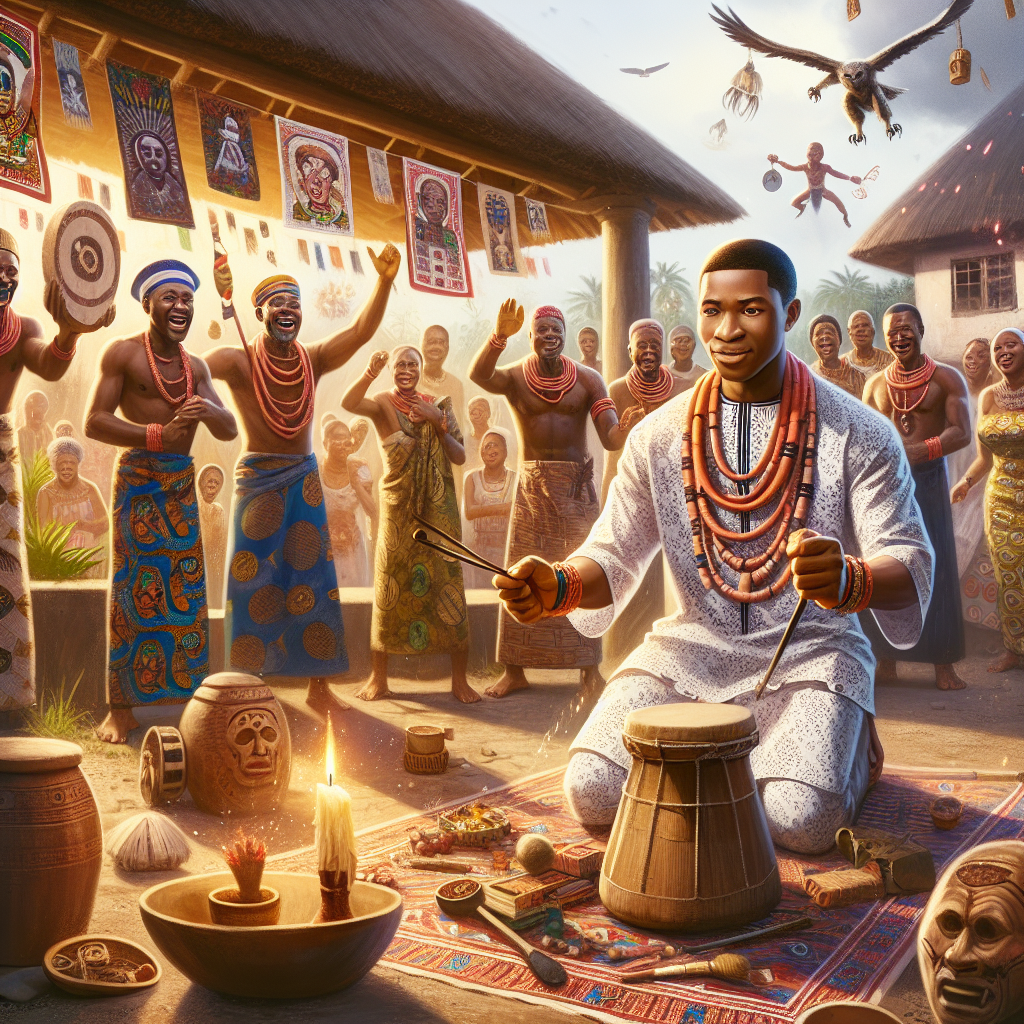Breaking Down Traditional Igbo Beliefs
Traditional Igbo beliefs are predominant amongst the Igbo people of Nigeria, and they’re deeply rooted in an intricate system of gods and spirits. These beliefs are centred around a supreme deity known as Chukwu, who is believed to have created the world and everything in it. Below Chukwu are smaller deities, known as Arusi, who are responsible for different aspects of life, including wealth, war, and fertility. These deities are not worshipped directly but through the ancestors.
The Role of Ancestors in African Spirituality
In Igbo cosmology, the ancestors, referred to as Ndiichie, play a vital role. Ancestors are believed to oversee the activities of the living from the spirit world and mediate between humans and the gods. Ancestors are also understood to play a significant part in maintaining community order by meting out punishments to wrongdoers in the society. Therefore, rituals and sacrifices are performed to honour them and ensure their blessings.
Key Deities in the Igbo Pantheon
Although the Igbo pantheon features a multitude of deities, several stand out for their prominence. Apart from Chukwu, key deities include Ala, the earth goddess responsible for morality, fertility, and productivity, and Amadioha, the god of thunder and justice. Ani is the deity of land and harvest, while Ogwugwu is the deity of the forest associated with hunting and medicine. Each deity is responsible for particular life aspects, and their followers perform rituals to appease them in their unique areas.
The Influence of African Spirituality on Igbo Culture
African spirituality has significantly influenced the Igbo culture, shaping nearly every aspect of daily life, from farming and trade to marriage and burial rites. For example, the Ikwa Ozu (the burial ceremony) is a vital aspect of Igbo tradition, viewed as the final journey of the departed to join the ancestors. Moreover, the concept of Chi, an individual’s personal spiritual being, is central to the understanding of success, failure, destiny and personal improvement in Igbo culture.
The Elements of an Igbo Religious Ceremony
Igbo religious ceremonies involve a multi-layered sequence of rituals designed to honour and appease the deities. Such ceremonies often start with the breaking of kola nuts, considered a sacred offering to the gods and ancestors. Ritual dances, prayers, chants, and music are also integral elements of these rites, while sacrifices, in the form of food, wine, or animals, are given to the deities and spirits.
How Traditional Beliefs Influence Igbo Daily Life
Traditional beliefs permeate Igbo daily life where individuals often seek advice and blessings from the gods for significant decisions, such as marriage, investments, and conflict resolution. The belief in the concept of evil spirits, known as ‘Ogwugwu’, significantly influences behaviours, with individuals performing rites to deter these spirits. Moreover, the values and moral codes embedded in Igbo spirituality foster communal living, respect for the elderly, and reverence for nature.
Sacred Symbols in Igbo Spirituality
In Igbo spirituality, symbols are vital tools for communicating deep spiritual truths. The python, for instance, is considered a sacred creature symbolising the water deity, Uhammiri. The kite bird, ‘uwo,’ represents communication between humans and higher powers, while the double-edged sword, ‘akpa,’ symbolises justice and punishment by Amadioha, the god of lightning and thunder.
Understanding Igbo Temples and Shrines
Igbo temples and shrines are dedicated spaces where worshippers connect with the deities. This includes personal shrines in homes to honour Chi, family shrines for ancestral spirits, and public shrines dedicated to various deities. These spaces feature carved representations of the deities and offer a serene environment for devotees to hold rituals and seek divine intervention.

Exploring the Myths of Igbo Gods
Igbo mythology is rich with stories revolving around the gods. For instance, the story of the earth goddess, Ala, tells of how she descended from the sky, shaped the earth, and brought forth vegetation, animals, and humans. These myths, passed down generations in the form of folktales and songs, not only entertain but also teach lessons on morality, bravery, wisdom, and the importance of community.
A Deep Dive Into the Igbo Spiritual World
The spiritual world in Igbo belief is a complex interplay of gods, spirits, and ancestors. It is a domain that influences the physical world continually and is always acknowledged in daily life. The spiritual world is seen as a mirror of the physical world but affects law, morality, and destiny. By understanding the dynamics of the Igbo spiritual world, one gains insights into the underpinning philosophies that guide the society and its people.
